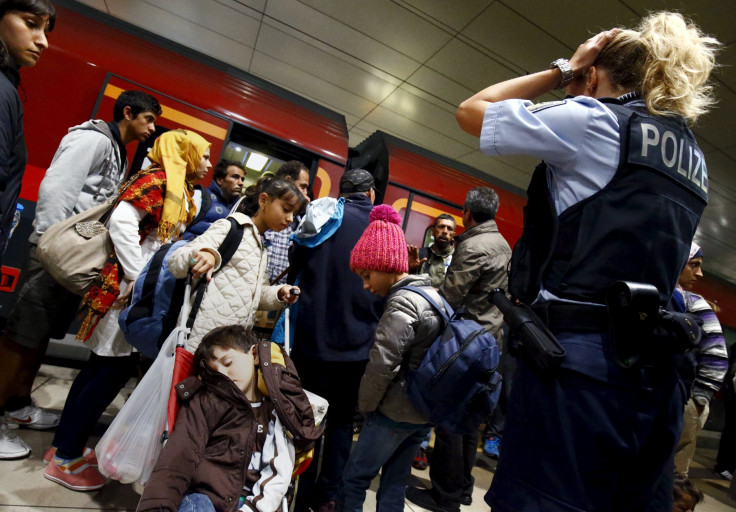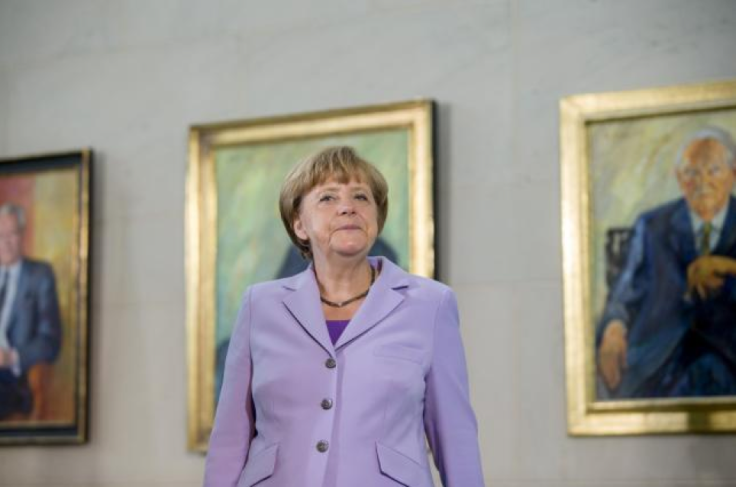What's Driving Refugee Migration To Germany?

As refugees have surged into Europe this year and moved by bus and train from the continent's eastern and southern edges to Austria, Hungary and countries throughout the Schengen Area where people are comparatively free to move about, other nations around the world have begun opening their borders to asylum seekers. For example, the United Kingdom has stepped up its efforts to offer refuge to people fleeing war-torn countries such as Iraq and Syria.
But Germany has emerged as the favored destination to date, with more than 3,000 arrivals recorded in Munich by midday Saturday and a total of 7,000 expected in the city by the end of the day. Multiple factors have drawn asylum seekers to Germany, including a strong economy and an enthusiastic head of government in Chancellor Angela Merkel who has promised there will be no cap placed on the number of asylum applications. "There can be no upper limit set on the intake of people who are fleeing persecution and need protection," said Manfred Schmidt, Germany's head of migration, after the announcement Monday that the nation would not impose limits on applications by refugee.
The German economy was one of the quickest to recover from a 2008 recession that drove unemployment rates into double-digit percentages in many European Union nations. It is the strongest economy in Europe, and forecasts last month indicate it is likely to continue growing the rest of this year.
Europe is geographically closer to the Middle East than either Canada or the U.S., which has been slow to accept Syrian refugees amid partisan bickering and rising anti-immigrant sentiment. That happenstance has led many refugees to see Germany as the promised land, a place where jobs are plentiful and they can assimilate with fewer obstacles.

Reactions by German people to the new arrivals have not been univerally positive, however. Authorities on refugees in the country said Germany expected to see as many as 800,000 applications for asylum by the end of the year. And the cost of taking on hundreds of thousands of refugees could be as much as between 1.8 billion and 3.3 billion euros (between $2.01 billion and $3.68 billion), German Labor Minister Andrea Nahles said this week.
Many opposed to granting the refugees asylum have pointed to what they say are the untenable costs of harboring so many foreign citizens. Pegida, the anti-Islam activist group, as well as a conglomeration of self-proclaimed neo-Nazis, have attempted to discourage refugees from entering the country by protesting violently and even attacking refugee camps. Freital and Heidenau, two small towns in southeastern Germany, have become known as hotbeds of violence against refugees.
In contrast, many locals have welcomed the refugees with open arms. A group of citizens gathered in Munich Saturday to cheer new arrivals, handing out candy and water to hundreds of refugees who made their way to the southeastern German city. Refugees, including many women and children, smiled as people clapped and shouted "Welcome to Germany!" as they arrived at the train station.
Applause from bystanders as hundreds of refugees, many from #Syria, arrive in Munich, v @BBC http://t.co/JucnU4nAuZ pic.twitter.com/jLsEkph49M
— Erik Meyersson (@emeyersson) September 5, 2015"In reality, life as we live it here is already far more diverse," German President Joachim Gauck said. "In our heads we know this, but the spirit sometimes lags behind. We as a nation must redefine ourselves, as a collective of different people, but who all accept common values."
© Copyright IBTimes 2025. All rights reserved.






















